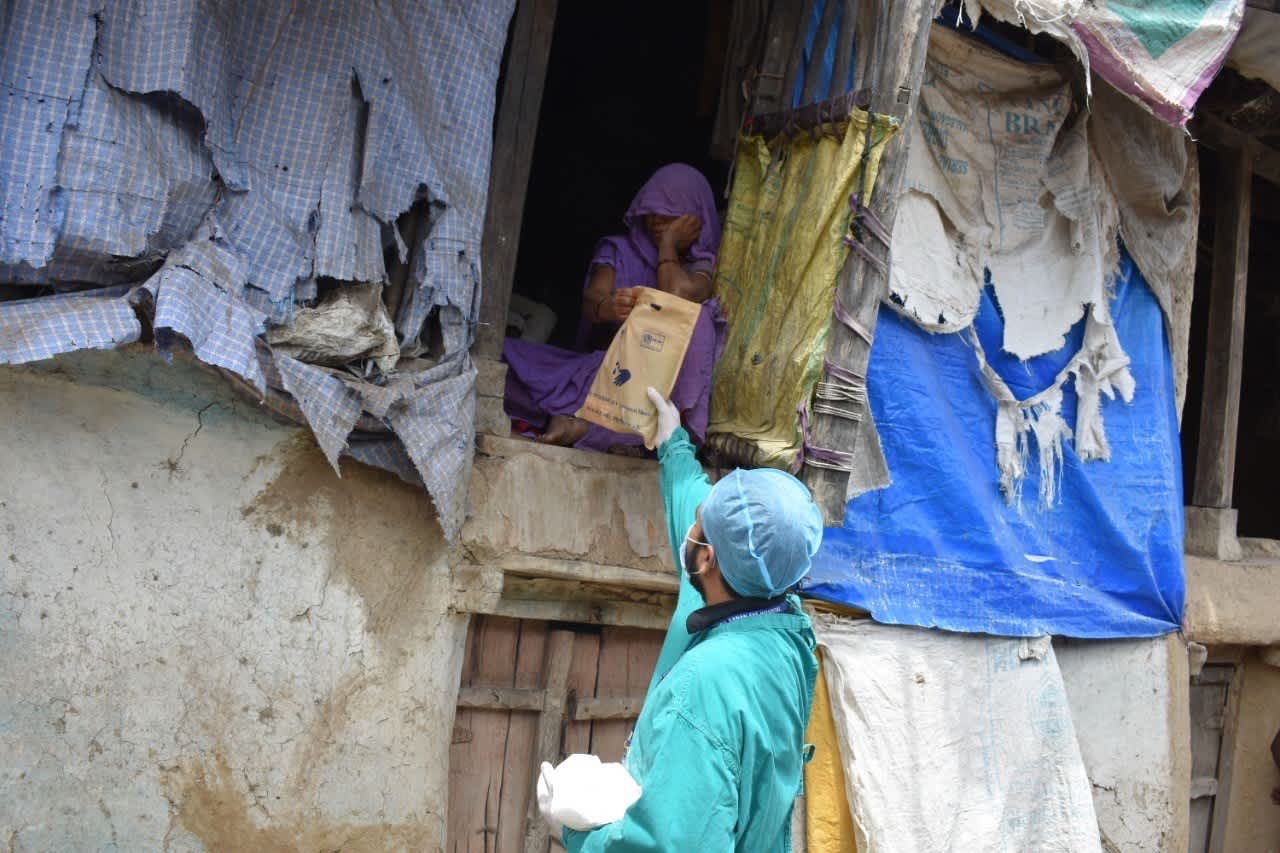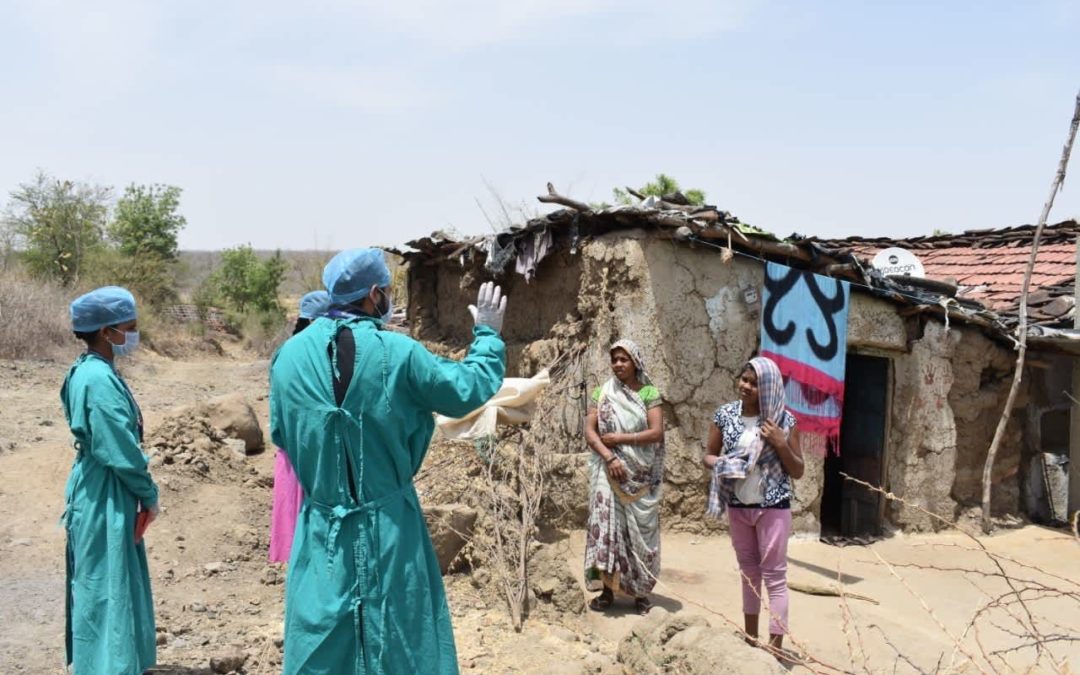COVID-19 is a health crisis whose impacts will devastate economies and increase inequality around the world. In addition to concerns here at home, there is also a striking and urgent realization that health systems in developing countries are not equipped with the means necessary to cope with the current and rapidly evolving impact of the pandemic. Recent figures outline a rise in numbers of cases throughout Latin America, Africa and South Asia, and, give way to fears of subsequent waves of pandemic peaks, particularly as China battles a second resurgence in COVID-19 cases. Many of Canada’s civil society partners operate in countries around the world where health systems need support and have the ability to respond quickly and with flexibility. With partners overseas working at reduced capacity in the face of the pandemic, Canadian partners are playing a much-needed role in preventing the spread of COVID-19 and reducing the negative socio-economic impacts of the virus on communities and vulnerable populations.
In this context, CCIC member, Operation Eyesight, is pivoting its work, that typically focuses on eye health, to leverage its network of partner hospitals around the world to support effective, community led responses to the pandemic.
Flattening the curve
Operation Eyesight is harnessing its relations with government and partner hospitals in Sub-Saharan Africa and South Asia to help “flatten the curve.” Operation Eyesight, with program teams already located in partner countries around the world, is in a unique position to maintain its commitment to sustainability and empower communities on a larger scale. On April 13th, the organization launched its COVID-19 response that will leverage local resources and expertise, easing the delivery of service for those in need. Kenyan staff are helping Kenyan citizens, working in ways that are locally grounded, and as such, effective.
Operation Eyesight’s response is also focused on addressing the increased challenges women and girls face as the primary caretakers in most families. With good hygiene and handwashing as the first line of defence against COVID-19, Operation Eyesight continues to focus programming on clean water, safe hygiene promotion and sanitation through access to hand washing stations, soap and hygiene kits. Shortages of medical supplies are also a significant challenge – in Canada – but also in other parts of the world. Operation Eyesight is ensuring essential supplies such as sanitizers, soap and medication for eye infections remain accessible. Finally, as a novel virus that is rapidly evolving and with new research emerging daily on the impacts of and measure to prevent COVID-19, healthcare workers and frontline staff need access to the most up-to-date information at all times. Operation Eyesight has begun educating front line health workers on infection, prevention and control measures. It is also supporting the distribution of educational materials related to COVID-19 to keep front line health workers and the most vulnerable informed.
Hospital partners have improved capacities to respond
Operation Eyesight works with 55 partner hospitals in 6 countries to train frontline workers, nurses and community health workers on prevention, infection and control measures for Covid-19. The organization plans to reach 600 000 individuals in Kenya, Ghana, Ethiopia, India, Zambia and Nepal through their health awareness and educational activities with a focus on women, girls and persons with disabilities. They are also ensuring Vision centres and hospitals are implementing strict sterilization protocols to make them COVID-19 free.
Supporting the prevention of community transmission
Through door-to-door distribution of health materials in local languages as well as hygiene kits, Operation Eyesight and its partners are working to prevent community transmission of the virus. In addition, they plan to install hand washing stations at water points, schools and vision centres across Kenya, Ethiopia, Ghana, India and Nepal. These will not only help families in need but also serve as demonstration units for the broader community to build their own. In Zambia, they plan to rehabilitate 60 boreholes to bring a clean source of water to rural areas.

A community health worker distributes hygiene materials in India.
Empowering communities to become leaders
In communities across 6 countries, Operation Eyesight will provide training to over 1500 community health workers to educate communities, with a particular emphasis on women, girls and people with disabilities. Village level water, sanitation and hygiene committees will be formed to train members to adopt appropriate hand washing and social distancing practices critical for the prevention of COVID-19. This approach aims to empower communities in their own response to the pandemic and prevent hospitals and health systems from being overwhelmed.
Canada’s international development and humanitarian sector is quickly pivoting to meet new demands. Organizations like Operation Eyesight are demonstrating Canadians’ commitment to assisting those in need around the world. Quick and determined action and shifting operations are not only helping the most vulnerable abroad but act as a symbol of Canada’s response to a challenge that is faceless and knows no borders. Canadian civil society organizations are key to the global response to COVID-19. Their ability to quickly shift gears, leverage relationships and openness embody the innovation required to address the current climate and ensure that we recover better going forward.

*By Arianna Abdelnaiem, Research Assistant at the Canadian Council for International Co-operation (CCIC).
* This blog is the second in a new series by CCIC that showcases leadership and innovation in Canada’s international development and humanitarian sector to the COVID-19 pandemic.

